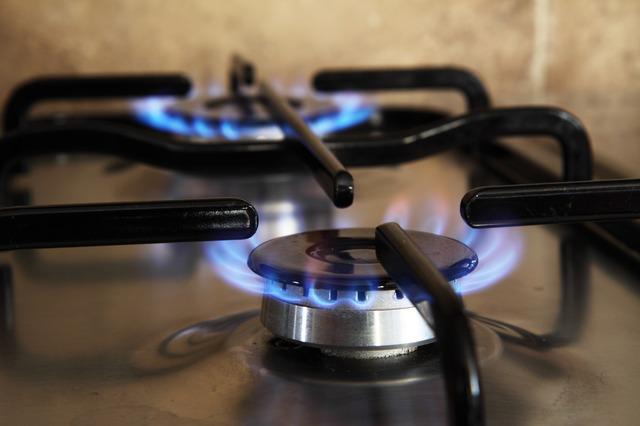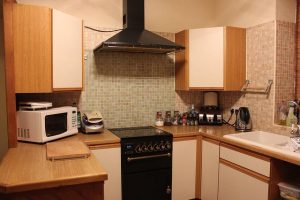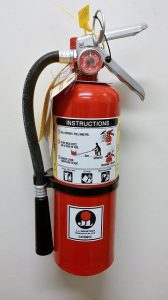A fire is one of the fastest ways to lose control of a home. Flooring can char, ceilings can collapse, and smoke can spread throughout the building in a matter of minutes.
Appliances are a common cause of domestic fires and affect thousands of properties in the U.S. each year. These fires not only put your home or business at risk but can also create incredible liability in terms of insurance, OSHA fines, and personal injuries. Prevention and smart response procedures should be your first line of defense when it comes to minimizing the risk of damage from appliance fires on your property.
Common Causes of Appliance Fires
The following are the six main culprits for appliance fires in residential homes:
- Dishwashers
- Refrigerators
- Toasters
- Stoves
- Dryer
- Microwaves
So, what can you do to prevent an appliance from starting a fire on your property? There are five standard best practices you should begin implementing immediately:
1. Inspect your electric wiring regularly:
Older homes (built over 10 years ago) are at an increased risk for electrical fires. In light of this, it is recommended to have a professional come out to perform a detailed inspection at least once every three to five years.
2. Replace damaged wiring:
Frayed or worn-out electrical wires are known by experts in the field to cause fires. Any damaged wiring should be repaired or replaced as soon as possible to avoid a fire outbreak.
3. Check for broken or damaged plugs:
Broken plugs are a serious hazard, not only for shock, but also for sparking and overheating. This can result in a fire if left untreated. To reduce your risk, be on the lookout for signs of fraying, tattering, and other signs of damage, and address these issues immediately when you see them.
4. Invest in surge protectors:
Power surges occur when a stream of electricity is abruptly cut off and then resumes again. Most surges are benign, but others can be strong enough to cause an appliance to spark and ultimately result in a fire. By investing in surge protectors, you can keep outlets safe from power surges by detecting excess current and passing it through to a grounding wire.
5. Keep flammable materials away from any electrical appliances:
The operation of electrical appliances generates heat, and flammable objects such as blankets or cleaning supplies placed near an outlet or appliance can spark a fire. A smart practice to follow is keeping flammable items at least three feet away from your appliances.
6. Avoid plugging too many devices into one outlet:
Doing this can overwhelm the wiring and cause a fire to break out. We recommend unplugging devices you aren’t using to eliminate excess use of electricity and keep your home safer from potential fires.
What to do When an Appliance Catches Fire
What happens when an appliance fire occurs in your home? How should you respond?
The first order of business is to contain the fire and ensure your personal safety. Unplug the appliance from the wall and call 911 for assistance. Depending on the size of the fire, there are two methods you can use to attempt to stop the fire until help arrives:
1. Try baking soda:
If the fire is small enough, baking soda could be an effective and low-cost solution for extinguishing the flames. Cover the affected area with a layer of baking soda to put the fire out by cutting off the oxygen it needs to spread.
2. Use a fire extinguisher:
A Type C fire extinguisher should be used for larger fires. To operate a fire extinguisher, point it at the source of the flames and firmly squeeze the handle. Evacuate the premises immediately if you are unable to put out the fire or if you think it might spread. Upon leaving the building, close the door to the room where the fire has broken out so that it doesn’t travel to other parts of your home.
Never try to put out an electrical fire with water. The water can conduct electricity and give you a severe electrical shock and worsen the fire, as well as spread it to other flammable objects in the room. After the fire has been put out, contact our fire damage restoration professionals at ServiceMaster S&R Systems as quickly as possible to begin restoring areas damaged by the blaze.
According to the Centers for Disease Control, the U.S. Fire Administration, and the National Fire Protection Association (NFPA), roughly 358,300 residential fires occur in the U.S. each year. Of these home-based fires, the top three causes (cooking, heating equipment, and electrical malfunction) all have to do with appliances. By following the guidelines above, you can reduce the risk of an appliance fire occurring on your property and feel confident responding in the event that one ever happens. When the initial threat has been taken care of, ServiceMaster S&R Systems can assist with bringing your property back to its normal condition.



